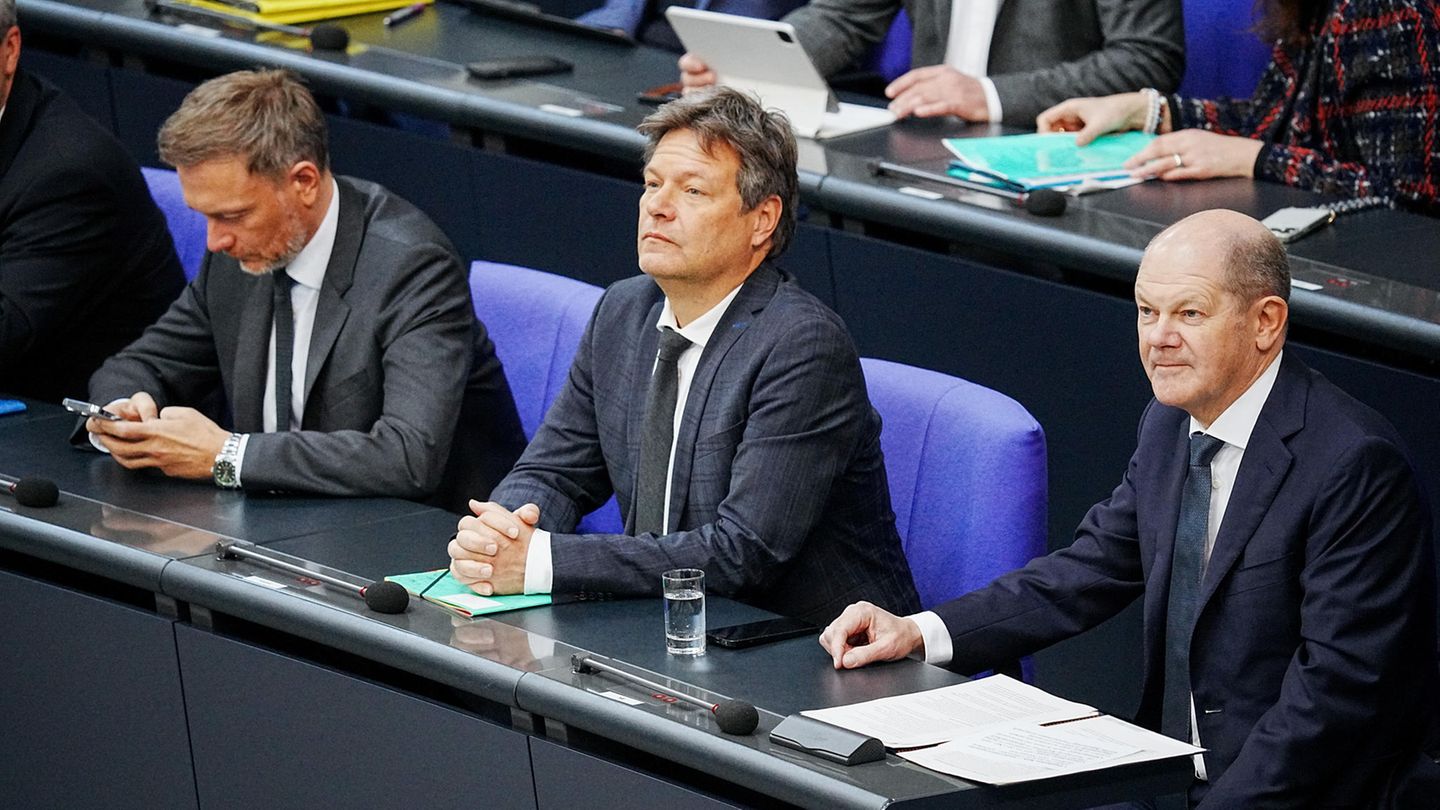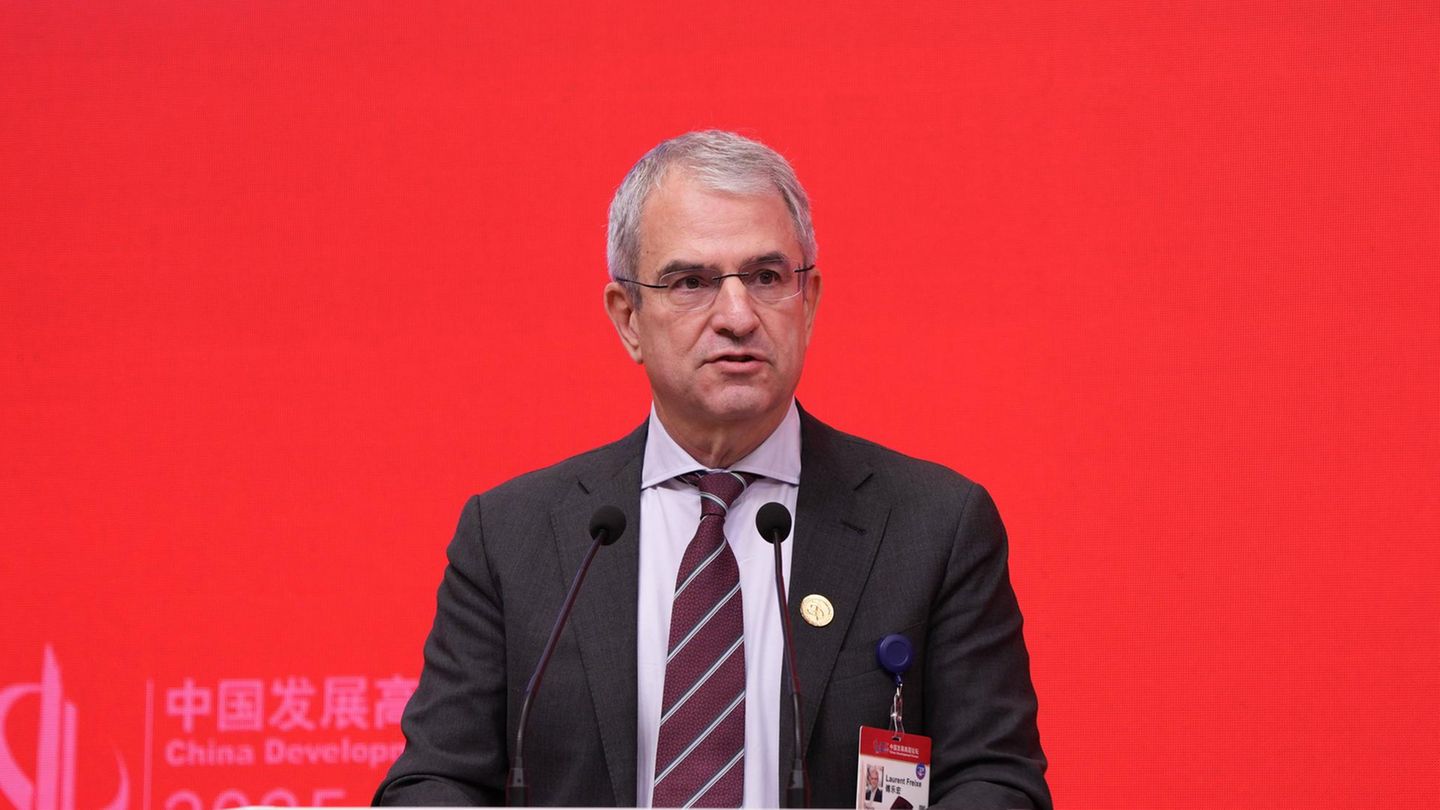It was one of the major issues in the coalition in recent weeks: How drastic should the heat transition be and how much will consumers be charged? Now the SPD, Greens and FDP have reached an agreement.
The traffic light coalition has reached a compromise on the controversial building energy law by banning the installation of new gas and oil heating systems. Accordingly, it remains the case that from January 1, 2024, every newly installed heating system must be operated with 65 percent renewable energies. However, there should be exceptions, transition periods and comprehensive funding. “With the Building Energy Act comes the binding switch to renewable heating,” said the Federal Ministry of Economics and the Federal Ministry of Building. The law creates planning security for house and apartment owners, manufacturers and craftsmen.
According to information provided by both ministries, there is now a completed draft law supported by all three parties. He should promptly go to the state and association hearing and then to the cabinet. The Energy Efficiency Act and the Federal Immission Control Act with acceleration measures for the expansion of wind power were also shortly to be heard in the state and association hearings.
According to the information provided, the draft for the Building Energy Act waives the originally planned replacement obligation for functioning oil and gas heating systems. If old heating systems break down beyond repair after 2024, an oil or gas boiler can be installed again at short notice so that, for example, you don’t have to freeze for weeks in the event of a failure in winter. However, this must then be supplemented with modern technology within three years in order to meet the 65 percent requirement. There are sometimes long delivery times for heat pumps.
“Enable a pragmatic transition”
The 65 percent requirement does not apply to homeowners over the age of 80 when installing new heating systems. The new law only applies if their house is inherited or sold – with a transitional period of two years. An exception to hardship should be economic efficiency if the value of the building and the investment sums are not in an appropriate relationship. In addition, there is no commitment to heat pumps as an alternative to oil and gas heating; instead, openness to technology applies.
“The fact that the draft of the Building Energy Act is now shared by all government parties will hopefully pacify the debate and ensure that the important and difficult issue is discussed calmly and prudently,” said Economics and Climate Protection Minister Robert Habeck (Greens). “The law will set the course for climate neutrality for another sector and we will enable a pragmatic transition. I’m very satisfied.”
Federal Finance Minister and FDP leader Christian Lindner emphasized: “There will be ambitious climate protection, but this can be achieved using different technologies. There is no fixation on the heat pump, modern gas heating, for example, remains possible.”
The transition will be “designed in a pragmatic and socially acceptable manner,” the Ministry of Economic Affairs and the Ministry of Construction said. In order to make the law even more consumer-friendly, the transition periods and the options – especially for new builds – have been extended again, for example to include solar thermal energy. So-called H2-ready gas heaters, which can be converted to 100 percent hydrogen, are possible. However, they should only be installed if there is a binding investment and transformation plan for hydrogen networks. And they would have to be operated with at least 50 percent biomethane by 2030 and with at least 65 percent hydrogen by 2036 at the latest.
Germany has legally committed to becoming greenhouse gas neutral by 2045 at the latest. To this end, the use of fossil fuels for heating buildings should be completely phased out by 2045 at the latest. At present, more than 80 percent of the heat requirement is covered by burning fossil fuels. Of the approximately 41 million households in Germany, almost half are heated with natural gas and almost one in four with heating oil. According to the Federal Ministry of Economics, heat pumps account for less than three percent.
Source: Stern
I have been working in the news industry for over 6 years, first as a reporter and now as an editor. I have covered politics extensively, and my work has appeared in major newspapers and online news outlets around the world. In addition to my writing, I also contribute regularly to 24 Hours World.




